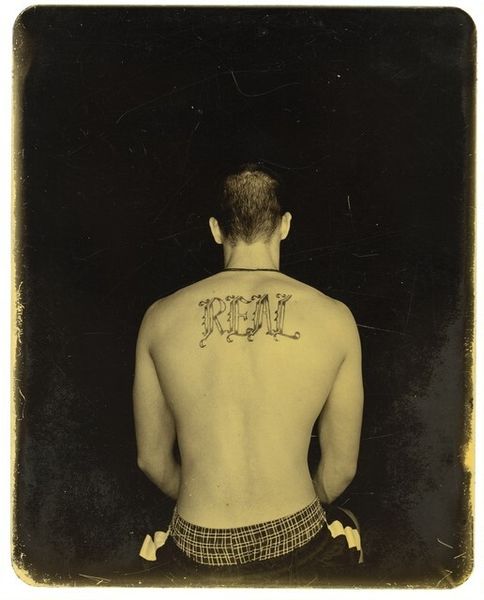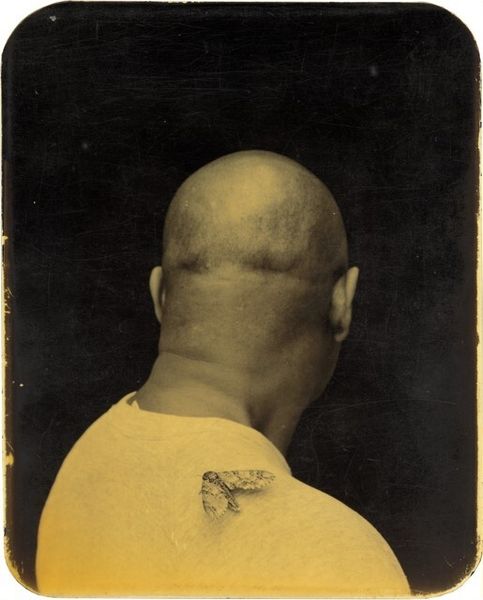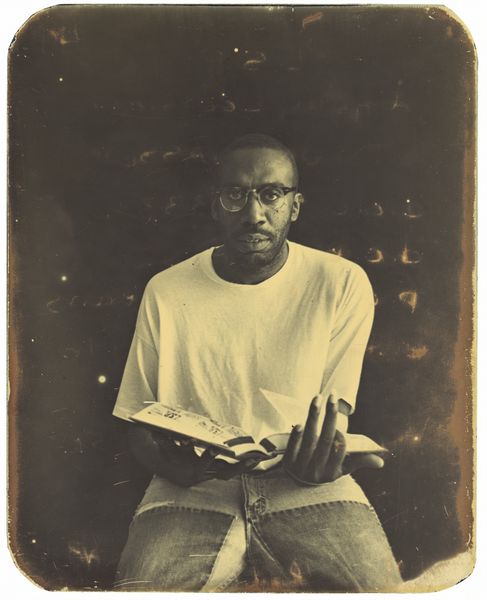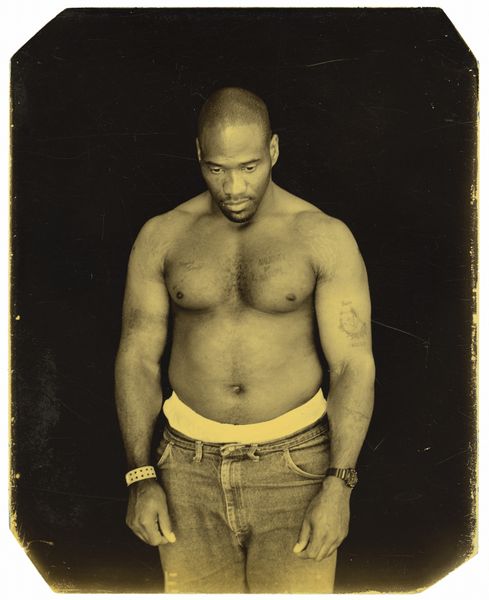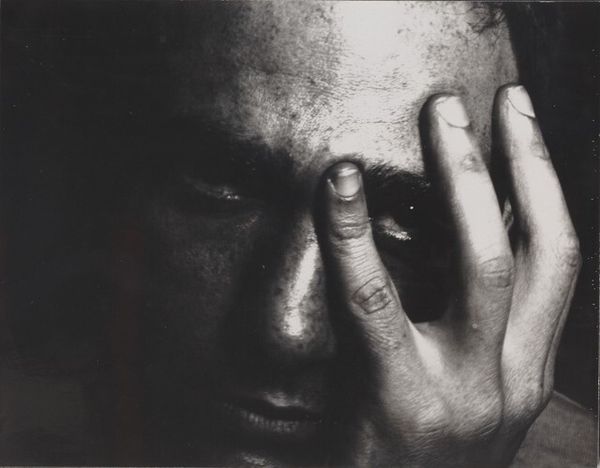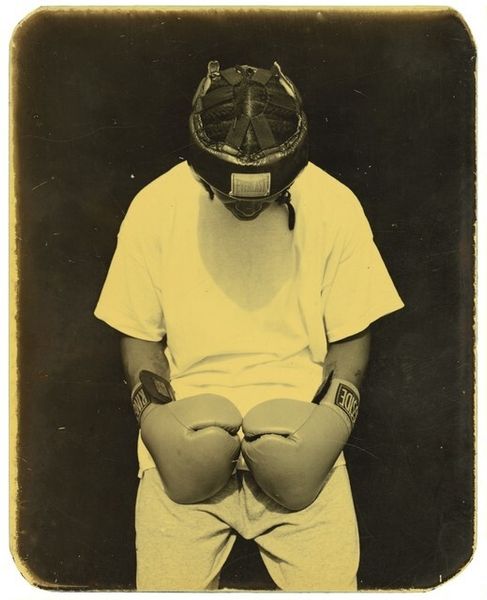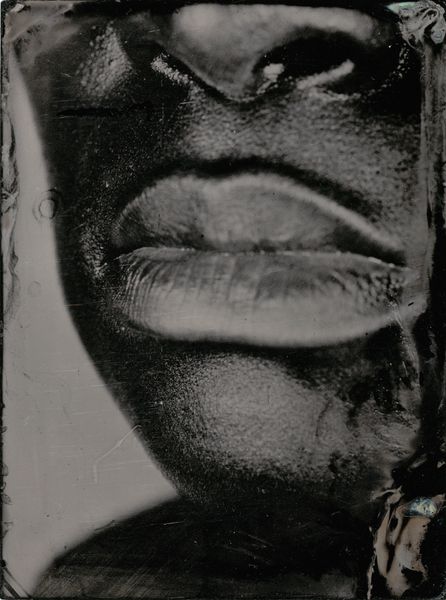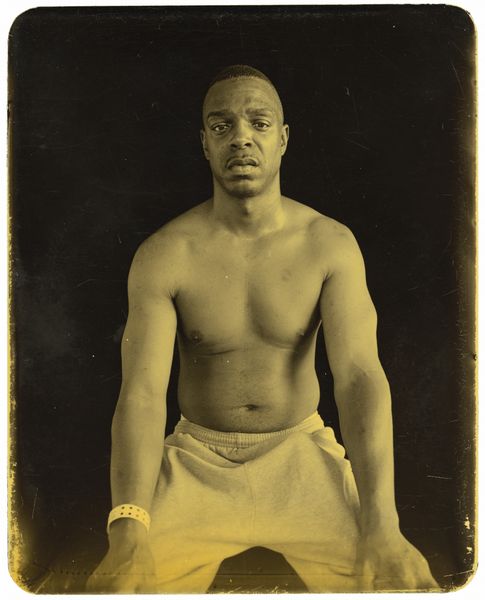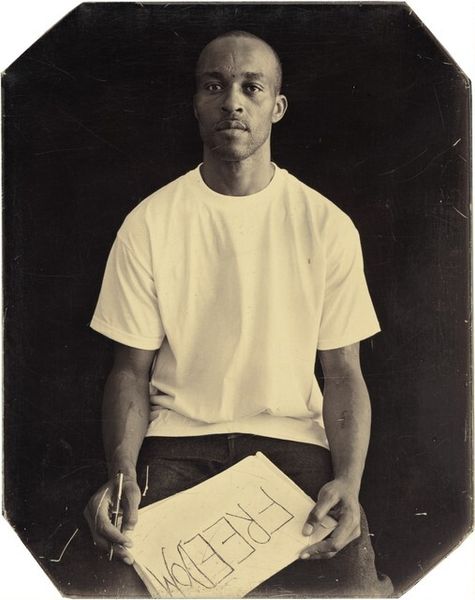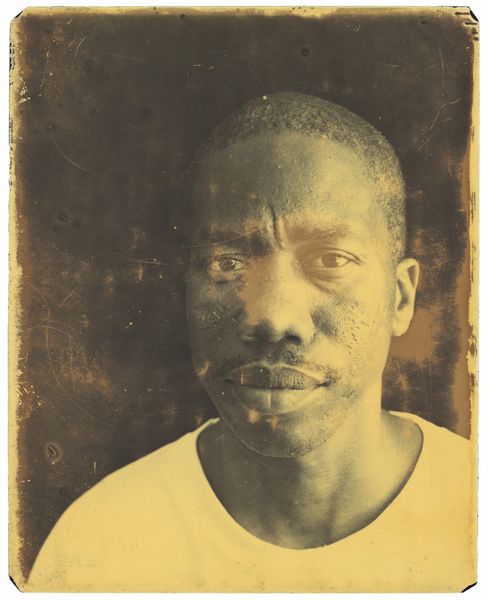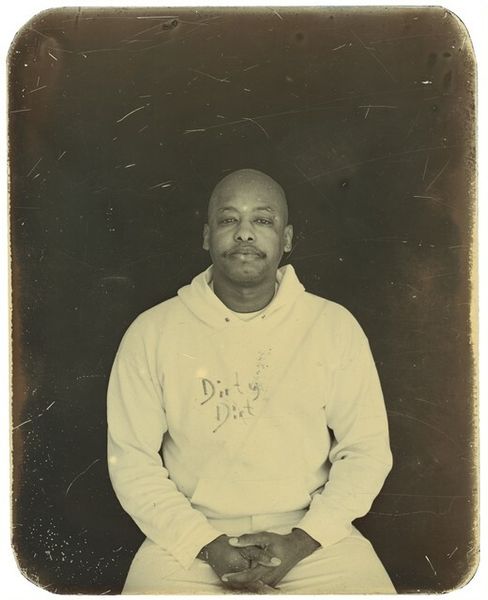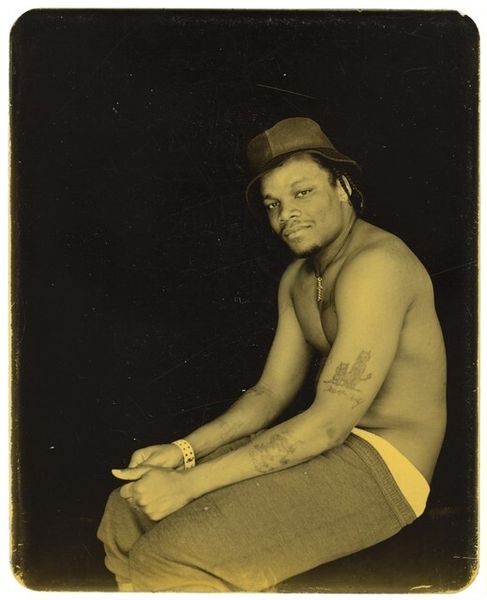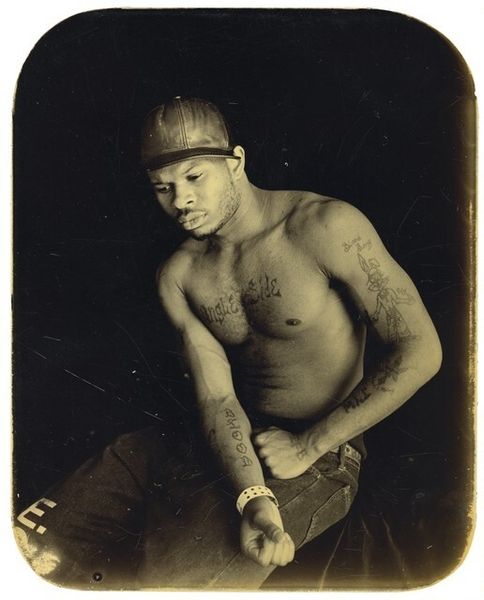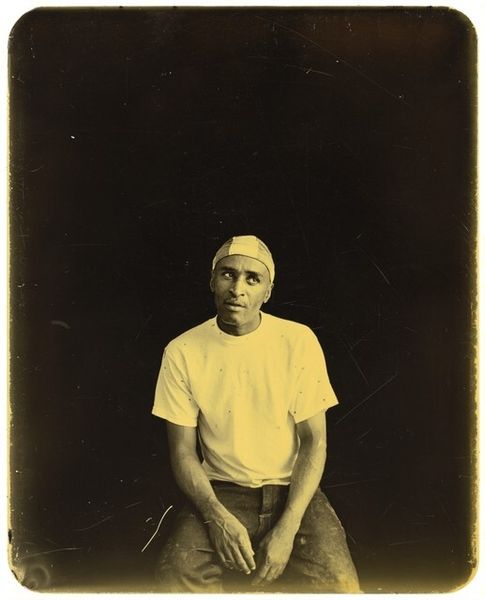
photography, gelatin-silver-print
#
portrait
#
contemporary
#
photography
#
gelatin-silver-print
#
nude
Dimensions: image/plate: 12.7 × 10.2 cm (5 × 4 in.)
Copyright: National Gallery of Art: CC0 1.0
Editor: Here we have Deborah Luster's photograph, "Steven Dewayne Turner, Transylvania, Louisiana," created in 1999, a gelatin-silver print. There's a stark vulnerability to this image, and an unsettling silence. How do you approach a portrait like this, with such a complicated history and social context embedded in it? Curator: Luster's work is powerful precisely because she understands and confronts the complex, often fraught relationship between photography, power, and representation, especially within the criminal justice system. The gelatin-silver process gives it a vintage feel, reminiscent of mugshots from the early 20th century. This technique points to photography's role in documenting and classifying individuals. Do you think this artistic choice amplifies or complicates our understanding of the subject? Editor: It complicates it, definitely. The historic process contrasts the modernity of the jeans and tattoos. It prompts me to think about the enduring systems that affect people, especially Black men, over time. The tattoos almost read as a visual language of identity inscribed *on* the body… a kind of biography. Curator: Exactly. And that’s crucial. Luster isn't just presenting an individual; she's engaging with the systemic forces that have shaped that individual's life and choices. The prison context – her work often deals with incarceration - also needs unpacking. How does knowing that the photograph may be linked to prison portraiture shift our view? Does it dehumanize or offer a space for humanity within the confines of such institutions? Editor: Knowing it's prison portraiture highlights a sense of enforced exposure. The individual isn't choosing how they’re seen, or maybe even to be seen at all. It pushes me to think about consent, agency, and the photographer's own role in this exchange. I’d thought of the nude back and tattoos as vulnerable but I realize now it is so much more. Curator: Luster uses these images to provoke difficult but vital dialogues about social justice and the human cost of institutional power. It invites us to question not only what we see, but also how and why we see it, challenging us to consider our own positions as viewers within this complex social landscape. Editor: Absolutely. It makes you rethink the gaze, and whose story is really being told. Curator: Precisely. The layers of meaning woven into this portrait really leave a lasting impact.
Comments
No comments
Be the first to comment and join the conversation on the ultimate creative platform.
